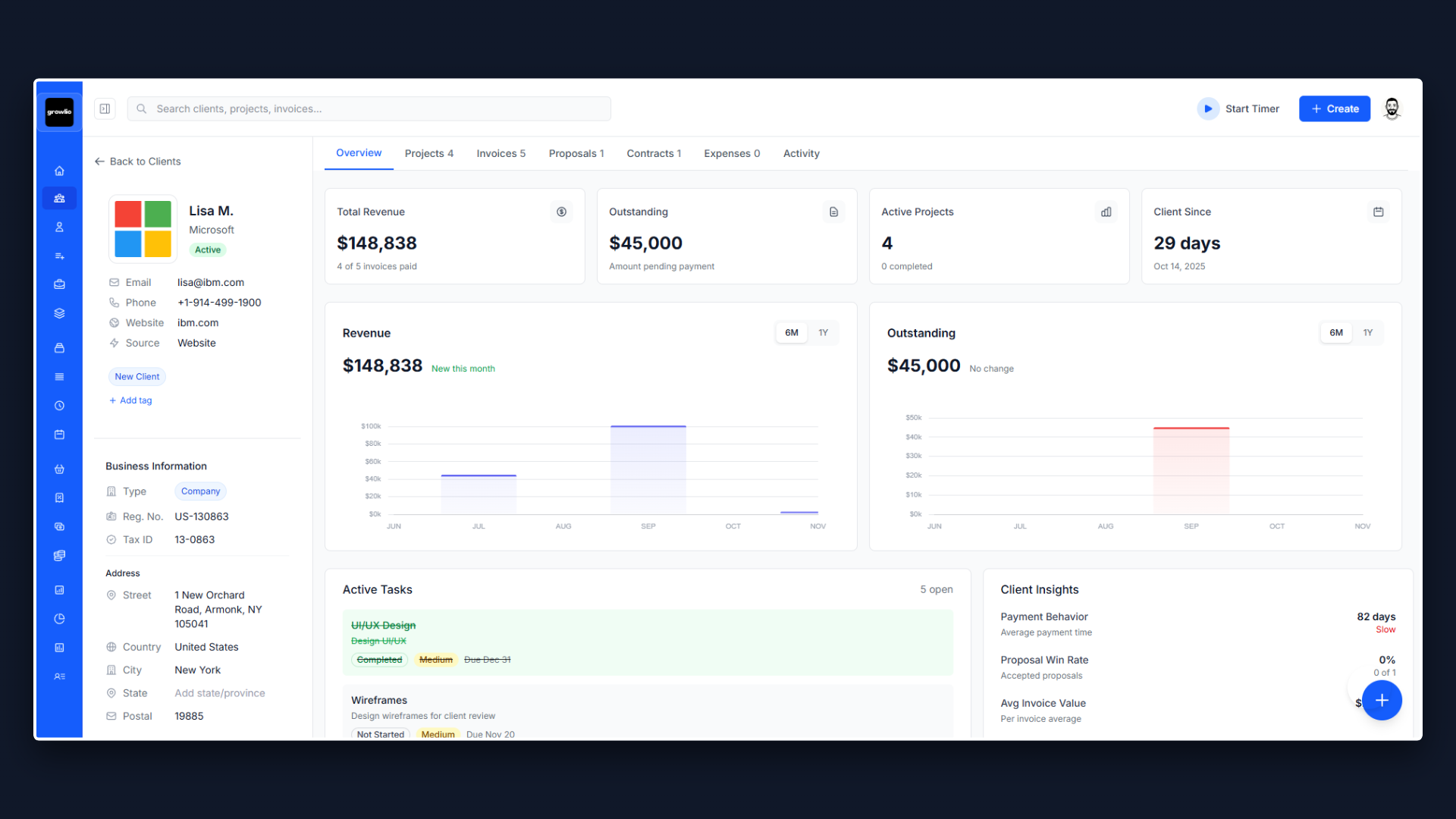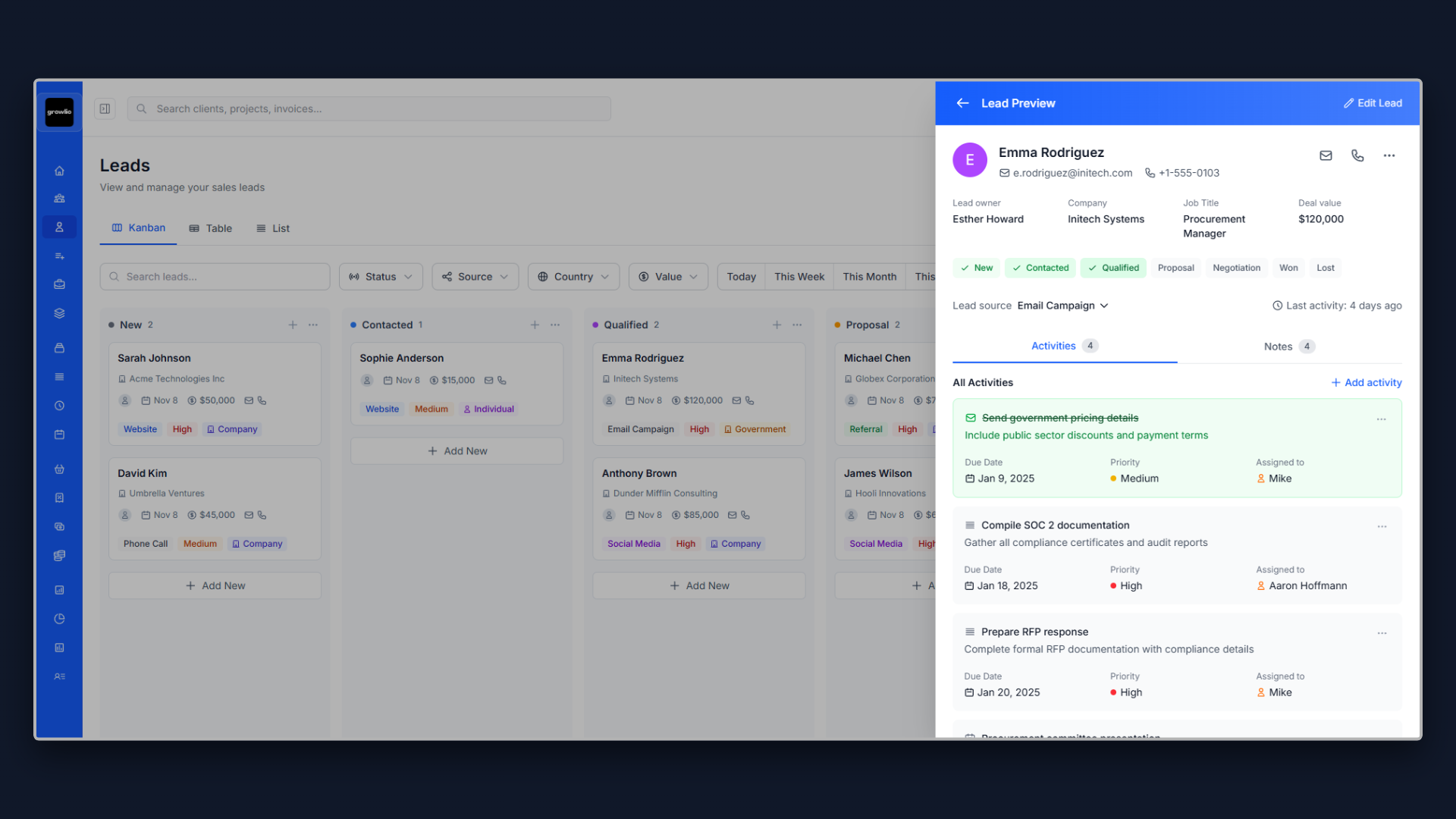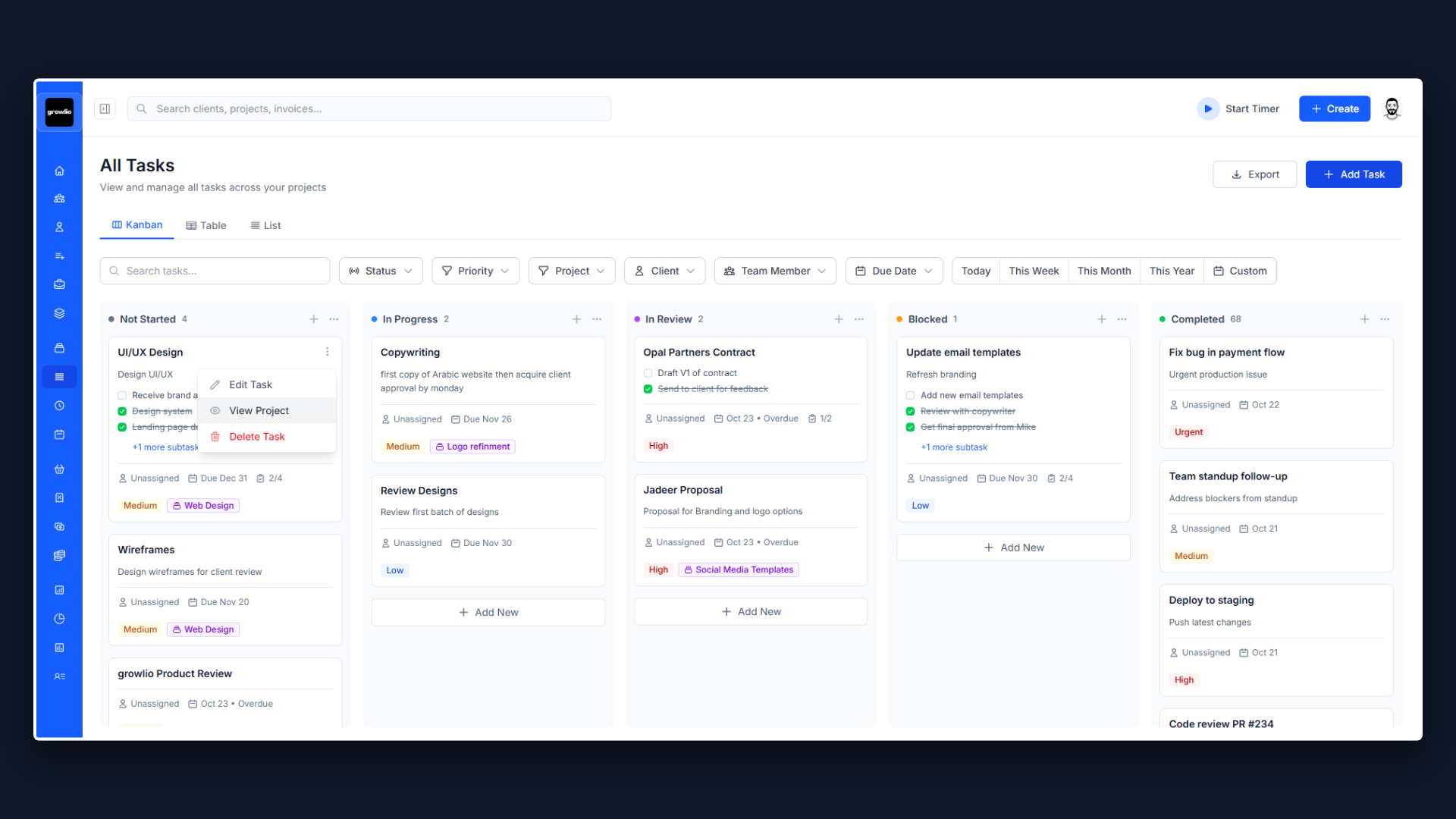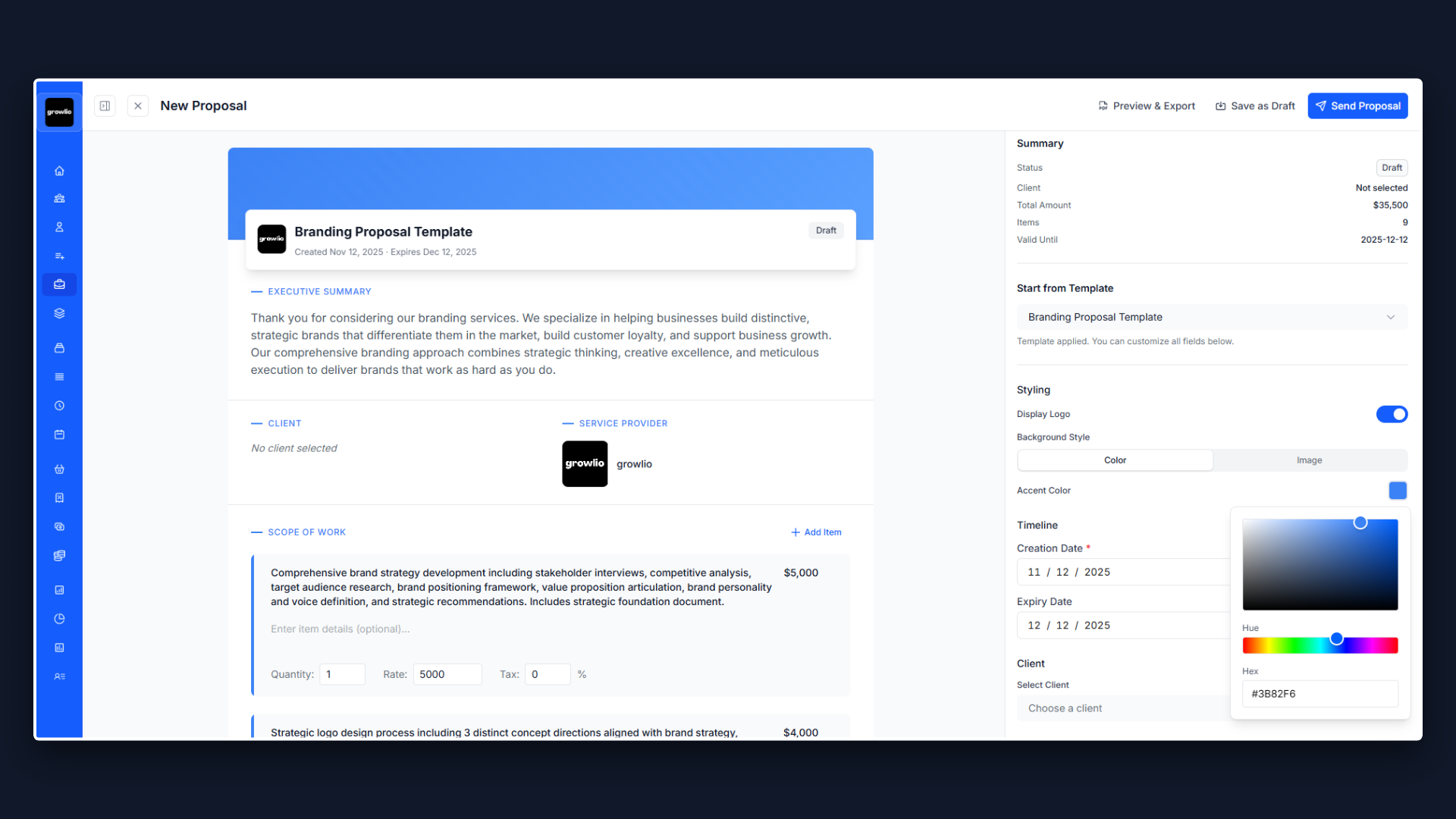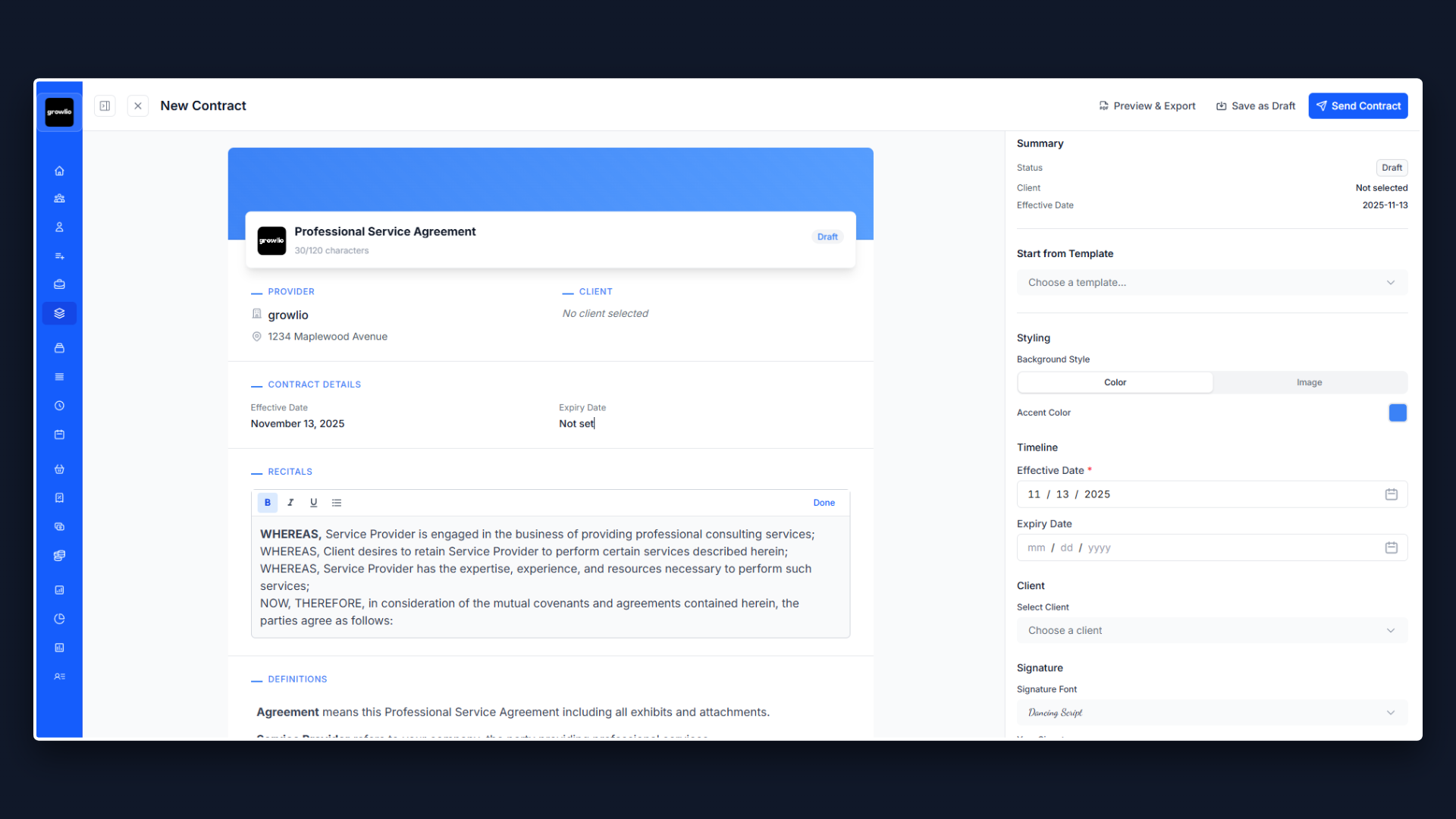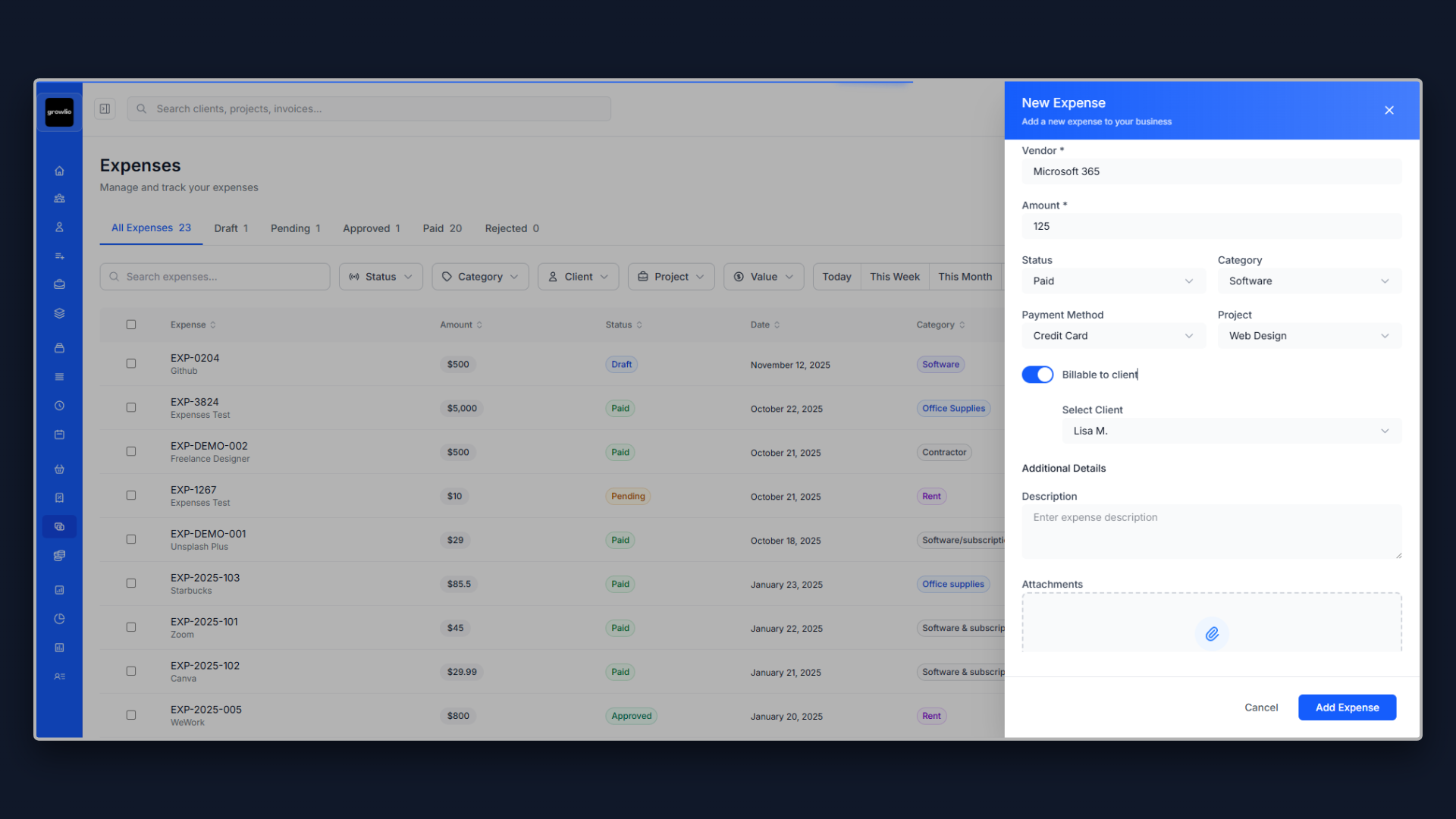Why Your Virtual Assistant Proposal Determines Whether Clients Trust You With Their Business
As a virtual assistant, you're not just offering task completion—you're offering to become an extension of your client's team, handling critical business operations, managing sensitive information, and representing their brand to customers and partners. Before a busy entrepreneur or executive entrusts you with their calendar, email, customer communications, or business operations, they need confidence you'll be reliable, professional, and capable of working independently without constant supervision.
The virtual assistant industry has grown to over $5 billion globally, with remote work normalization driving explosive demand for skilled VAs who can handle everything from administrative tasks to specialized business functions. Yet 60% of businesses report dissatisfaction with their virtual assistants, citing poor communication, missed deadlines, lack of proactive thinking, or inability to work independently. The difference between VAs charging $15/hour and those commanding $50+/hour often comes down to how they present their professionalism, systems, and value in proposals.
Your virtual assistant proposal needs to accomplish several critical objectives simultaneously: demonstrate you're organized, reliable, and professional despite working remotely, prove you have systems and tools to manage tasks effectively without supervision, showcase relevant skills and experience for their specific needs, address concerns about time zone differences, availability, and responsiveness, and differentiate yourself from the thousands of other VAs competing on freelance platforms. This is your opportunity to transform from a commodity task-doer into a trusted business partner who enables your client to focus on high-value work.
1. Open With the Cost of Their Time, Not Your Task Skills
The biggest mistake virtual assistants make is leading with a list of tasks they can do: "I can manage your email, schedule appointments, do data entry..." Your prospect doesn't care about your task list yet. They care about getting their time back and focusing on what only they can do.
Start by demonstrating you understand the value of their time and the cost of doing low-value tasks themselves. For a business owner, open with: "As a business owner billing $200-$300/hour for client work, every hour you spend on administrative tasks—managing your inbox, scheduling meetings, organizing files, handling customer service inquiries—costs you $200-$300 in lost revenue and opportunity. If you're spending 10-15 hours weekly on tasks a skilled VA could handle for $30-$50/hour, you're leaving $2,000-$4,500 weekly on the table. That's $100,000-$225,000 annually in opportunity cost. You didn't start a business to manage calendars and respond to emails—you built it to serve clients and grow. You need a reliable virtual assistant who can handle operational tasks so you can focus on the strategic work that actually moves your business forward."
For an executive: "As a VP managing a team of 15 and multiple strategic initiatives, your calendar is packed with meetings, but you're still drowning in administrative work—expense reports, meeting notes, presentation prep, travel arrangements, inbox management. You're working 60+ hour weeks but still feel behind. The problem isn't that you need to work harder—it's that 20-30% of your time is spent on tasks that don't require VP-level thinking. A skilled executive assistant can reclaim 10-15 hours weekly, letting you focus on leadership, strategy, and the high-impact work you were hired to do. That time is worth $10,000-$20,000 monthly in productivity and strategic value to your company."
This value-focused opening immediately reframes the conversation from "cost of hiring a VA" to "cost of NOT hiring a VA." Now they're ready to hear your solution.
2. Define Your Service Scope With Crystal Clarity
Scope ambiguity destroys VA relationships. Clients expect you to handle everything. You feel overwhelmed and underpaid. Prevent this by defining scope exhaustively.
Structure scope definition precisely: Core Services Included (General VA Package):
Email & Calendar Management: Inbox monitoring and prioritization (flag urgent, archive spam, draft responses for your approval). Calendar management and meeting scheduling (coordinate across time zones, send reminders). Meeting preparation (agendas, materials, dial-in info). Follow-up task tracking from email threads and meetings.
Administrative Support: Document creation and formatting (Word, Google Docs, presentations). File organization and cloud storage management (Dropbox, Google Drive, etc.). Data entry and spreadsheet management (basic Excel/Sheets). Travel research and booking coordination. Expense tracking and receipt organization.
Communication Management: Customer inquiry response (using your templates and guidelines). Basic customer support via email (first-line response, escalate complex issues). Appointment confirmation and reminder calls/emails. Follow-up with clients, vendors, or partners on your behalf.
Research & Information Gathering: Online research for projects, competitors, or business decisions. Vendor research and price comparisons. Contact information gathering and list building. Meeting or event research and recommendations.
Social Media & Content Support (Basic): Scheduling pre-approved social media posts. Monitoring mentions and comments (flag important ones). Basic graphic creation using Canva from your brand templates. Content formatting and uploading to website/blog.
Explicitly Outside Scope (Available as Add-Ons or Separate Pricing): Specialized skills (graphic design beyond templates, video editing, copywriting, bookkeeping). Technical work (website development, CRM setup, complex automation). Marketing strategy or content creation (I execute your strategy, not create it). Sales calls or client-facing work requiring deep product knowledge. Weekend or after-hours emergency support (unless pre-arranged). Tasks requiring login access to financial accounts (bank, credit cards) unless proper security protocols discussed.
Response Time Commitments: Routine tasks: Started within 4 business hours, completed within agreed SLA. Urgent requests (flagged as such): Response within 1 hour during business hours. Non-urgent tasks: Completed within 24-48 hours. After-hours: Not monitored unless pre-arranged for specific event/deadline.
This exhaustive definition prevents the "I thought you'd handle that" conversations that create friction.
3. Address Remote Work Concerns With Systems and Tools
Clients fear that remote assistants will be unresponsive, disorganized, or require too much management. Demonstrate your systems that make remote work seamless.
Outline your operational approach:
Task Management & Tracking: Project management tool (Asana, Trello, ClickUp, or your preference) for all task tracking. You assign tasks with priority, deadline, and context—I update status and add notes. Daily digest showing completed tasks and in-progress work. Weekly summary report every Friday with completed tasks, time spent, and upcoming priorities. Transparent workload visibility so you always know what I'm working on.
Communication Protocols: Primary channel: [Email / Slack / your preferred platform]. Daily check-in: Brief morning message confirming priorities and any blockers. Urgent matters: Text message to [your phone] for true emergencies (used sparingly). Video calls: Weekly 30-minute sync meeting + ad-hoc as needed for complex topics. Response time: Within 1-2 hours during business hours, same-day for routine matters.
Security & Access: Password manager (1Password, LastPass) for secure credential sharing. Two-factor authentication enabled on all accounts with access. Separate work device (not shared with family, secure WiFi only). Signed confidentiality agreement protecting client information. Professional liability insurance and business insurance coverage.
Time Tracking & Accountability: Time tracking software (Toggl, Harvest, or your preference) logging all work. Detailed task descriptions for transparency (you can see exactly what time was spent on). Screenshots or activity monitoring if requested (I have nothing to hide). Never rounding up or padding hours—accurate to the minute. Monthly invoice with detailed time breakdown by task/category.
Backup & Continuity: Cloud-based systems ensure continuity if device issues occur. Documentation of recurring processes so nothing is locked in my head. Backup coverage arrangement with trusted VA colleague for planned absences. Advance notice (minimum 2 weeks) for any planned time off. Emergency backup plan for unexpected illness or situation.
Professional Workspace: Dedicated home office with professional setup (not working from couch/coffee shops). High-speed reliable internet with backup (mobile hotspot if primary fails). Quality headset for clear video/phone calls. Professional background for video meetings. Quiet environment during business hours.
This detailed systems overview demonstrates you're a professional who takes remote work seriously, not someone working casually from their bedroom.
4. Showcase Relevant Skills and Experience Specifically
Generic "I can do anything" claims aren't convincing. Highlight specific skills and experience relevant to their needs.
Present targeted expertise: Background & Experience: 5+ years providing virtual assistant services to entrepreneurs, consultants, and executives. Worked with 20+ clients across industries including [relevant industries to their business]. Specialization in supporting [their role type: coaches, consultants, real estate agents, etc.]. Average client relationship: 18+ months (long-term partnerships, not one-off projects).
Technical Proficiencies: Productivity: Google Workspace (Docs, Sheets, Calendar), Microsoft 365 (Word, Excel, Outlook). Project Management: Asana, Trello, ClickUp, Monday.com. Communication: Slack, Zoom, Microsoft Teams. CRM: HubSpot, Salesforce, Pipedrive [customize to their stack]. Scheduling: Calendly, Acuity Scheduling. Design: Canva (basic graphics, social media posts). Other: [Any specialized tools relevant to their business].
Soft Skills: Proactive problem-solving (I anticipate needs, not just react to requests). Attention to detail (I catch errors and inconsistencies before they become problems). Independent worker (I don't need hand-holding, just clear direction). Professional communication (representing you well in all interactions). Adaptable learner (I quickly learn new tools and processes specific to your business).
What Makes Me Different: Industry experience: I've supported [their type of business] specifically, so I understand your workflows. Proactive approach: I don't just complete tasks—I suggest improvements and catch issues before you notice them. Business mindset: I think like a business owner, not just a task-completer. I understand the "why" behind tasks. Long-term thinking: I'm building a sustainable VA practice based on excellent client relationships, not churning through clients. US-based [or your location]: Same/similar time zone, native English speaker, cultural alignment. [Adjust these differentiators to match your actual situation]
Example Projects I've Handled: Managed inbox for executive receiving 200+ emails daily, reducing inbox to zero daily and flagging 10-15 for personal response. Coordinated complex international travel (15+ flights, 8 hotels, multiple countries) with backup plans and detailed itinerary. Organized virtual summit with 20+ speakers including scheduling, tech setup, attendee management (500+ registrants). Streamlined onboarding process for coaching client, reducing administrative time by 10 hours per new client. Managed social media scheduling (5 posts weekly) and engagement monitoring across 3 platforms.
This specific expertise presentation proves you're qualified for their particular needs, not just any VA work.
5. Present Flexible Pricing Models That Fit Different Needs
One-size-fits-all pricing doesn't work for VA services. Offer packages that let clients choose based on their needs and budget.
Outline pricing clearly: Package 1: Part-Time Support (10 hours/month) - $450/month
Ideal for: Light administrative support, email/calendar management, occasional research or tasks. Approximately 2-3 hours per week. Includes: All core services (email, calendar, admin, basic research). Weekly check-in and task prioritization. Task management and time tracking. Hourly rate equivalent: $45/hour. Unused hours do not roll over (use-it-or-lose-it encourages efficiency).
Package 2: Regular Support (20 hours/month) - $850/month
Ideal for: Consistent weekly support, mix of recurring and project-based tasks. Approximately 5 hours per week. Includes: All core services plus light social media scheduling and content support. Two video check-ins monthly for strategic alignment. Priority response time (faster than part-time clients). Hourly rate equivalent: $42.50/hour. Most popular package for solopreneurs and small business owners.
Package 3: Dedicated Support (40 hours/month) - $1,600/month
Ideal for: Significant workload, ongoing projects, daily collaboration. Approximately 10 hours per week or 2 hours per day. Includes: All services plus advanced project support and process improvement recommendations. Weekly video strategy sessions. Highest priority (you're my primary client). Some flexibility for urgent deadline pushes. Hourly rate equivalent: $40/hour. Best for executives and businesses with substantial administrative needs.
Package 4: Full-Time Executive Assistant (160 hours/month) - $6,000/month
Ideal for: Comprehensive executive support, managing all administrative operations. Approximately 40 hours per week. Includes: Everything in other packages plus proactive business management. Daily collaboration and strategic thinking. Expanded scope (you become my primary/only client). Attendance at key meetings for note-taking and follow-up. Process documentation and continuous improvement. Hourly rate equivalent: $37.50/hour. Executive-level partnership.
Alternative: Hourly Rate - $50/hour
Ideal for: Sporadic needs, project-based work, trial period before committing to package. Billed in 15-minute increments (0.25 hour minimum). 5-hour monthly minimum to maintain active relationship. No guaranteed availability (package clients get priority). 7-day payment terms. Good for testing fit before committing to monthly package.
Add-On Services (Beyond Core Scope): Specialized skills (advanced graphic design, copywriting, bookkeeping): $60-$75/hour. After-hours or weekend support: 1.5x hourly rate. Rush projects (less than 24-hour turnaround): 1.5x rate. One-time setup projects (CRM setup, process documentation): Quoted separately.
Payment Terms: Monthly packages: Billed first of month, due within 5 days. Auto-payment via credit card or ACH preferred (saves admin time for both of us). Hourly work: Invoiced weekly, due within 7 days. Late payments (5+ days overdue): 1.5% monthly interest + work paused until current.
This tiered structure lets clients choose the right level while clearly showing value scaling.
6. Address Common VA Concerns and Objections
Every client has fears about hiring a virtual assistant. Address the most common ones proactively.
Tackle concerns directly: "How do I know you'll actually work the hours you bill?"
Transparency is fundamental to our relationship. I use time-tracking software (Toggl/Harvest) that logs every minute with task descriptions. You receive detailed time reports showing exactly what I worked on. I can provide screenshots or activity monitoring if that gives you peace of mind. If you ever feel time billing doesn't match value delivered, we'll discuss immediately. My business depends on trust—I would never jeopardize that by inflating hours.
"What if you're not available when I need you?"
I set clear availability windows and response time commitments (outlined above). For package clients, you're not competing with 20 other clients—I limit my client load to ensure availability. For routine needs, task management system means you're never blocked waiting for real-time response. For true emergencies, I provide emergency contact method. If I'll be unavailable (vacation, illness), I give advance notice and ensure coverage or handoff plan.
"How do I know my information is secure?"
I take security seriously: password manager for all credentials (never reusing passwords), two-factor authentication on all accounts, work-only device (not shared with family), secure home internet (WPA3 encryption, no public WiFi for work), signed confidentiality agreement, and professional liability insurance. For extremely sensitive information, we can discuss additional measures (VPN, encrypted communications, etc.). I've never had a security incident in 5+ years.
"What if it doesn't work out?"
Let's start with a trial period: First month is trial for both of us (either party can end with 2 weeks notice). After trial, standard 30-day notice to end relationship. If you're unsatisfied in first month, I'll work with you to make it right or provide partial refund. I want long-term relationships, not hostage situations. Most clients who aren't happy tell me early, we adjust approach, and relationship improves. Open communication prevents most problems.
"I've had bad experiences with VAs before."
I hear this often. Common issues are poor communication, missed deadlines, lack of initiative, or inability to work independently. Here's how I'm different: I over-communicate (daily updates, weekly summaries, proactive status sharing). I meet deadlines or give advance warning if something's delayed. I'm proactive (I flag issues, suggest improvements, anticipate needs). I work independently (I problem-solve before escalating, I don't need hand-holding). Reference calls with current/past clients can verify this.
"Can you handle the specific tools/systems I use?"
I'm proficient in [tools listed earlier], but I'm also a fast learner. If you use something I haven't used, I'll learn it on my time (not yours). Most business tools have similar logic—I adapt quickly. If your business requires highly specialized software with long learning curves, we can discuss training approach and timeline. I'd rather be honest about learning curve than overpromise.
These direct responses to common objections remove barriers to hiring you.
7. Demonstrate Proactive Thinking, Not Just Task Execution
Task-completers are commodities. Strategic partners are valuable. Show you think proactively about improving clients' operations.
Showcase strategic value: How I Add Value Beyond Task Completion:
Process Improvement: I don't just follow your processes—I suggest improvements. Example: Client had manual invoice tracking in spreadsheet. I suggested automating with their accounting software's recurring invoice feature, saving 2 hours monthly. I document processes as I learn them, creating SOPs for future efficiency or if you need to transition to different VA. I identify bottlenecks and suggest solutions (tools, templates, workflow changes).
Proactive Problem Prevention: I catch issues before they become problems. Example: Client had meeting scheduled with prospect but preparation materials weren't ready. I flagged this 48 hours in advance, allowing time to prepare. I notice patterns (recurring problems, missed opportunities) and bring them to your attention. I maintain your CRM hygiene—updating records, flagging duplicates, ensuring nothing falls through cracks.
Communication on Your Behalf: I draft email responses for your review, matching your tone and voice. Over time, I handle routine communications independently (appointment confirmations, basic customer questions). I represent you professionally in all interactions—I'm an extension of your brand, not "just the assistant." I learn your preferences and apply them without asking every time.
Strategic Support: I track metrics you care about (email response time, meeting completion, project deadlines). I remind you of important deadlines, renewals, or follow-ups before they're urgent. I prepare briefing materials before important meetings so you're never caught off-guard. I maintain institutional knowledge—I remember context you've forgotten.
Example: How I've Helped Past Clients: E-commerce client: Noticed abandoned cart emails weren't sending. Investigated, found technical issue, coordinated fix with developer. Prevented $5K+ in lost monthly revenue. Consultant client: Suggested automating intake process with Calendly + forms, reducing scheduling back-and-forth from 4-6 emails to zero. Reclaimed 5 hours monthly. Executive client: Created dashboard tracking key projects and deadlines. Executive could see everything at a glance instead of digging through email. Reduced executive anxiety and improved project completion rate.
This proactive positioning justifies premium pricing because you're delivering strategic value, not just completing tasks.
8. Include Client Testimonials or Results Examples
Claims are easy. Proof is powerful. Include 2-3 testimonials or examples showing how you've helped similar clients.
Format social proof clearly: Sarah M., Business Coach
"Before hiring [Your Name], I was working 60+ hour weeks and still felt behind on administrative tasks. She took over my email management, client scheduling, and CRM updates—instantly freeing up 10-15 hours weekly. More importantly, she's proactive. She anticipates what I need before I ask. She's caught errors, suggested improvements, and become a true partner in my business. Best decision I made this year. ROI is easily 10x her fee."
Michael T., Real Estate Investor
"I've worked with 5+ virtual assistants over the years, and [Your Name] is in a different league. Previous VAs required constant supervision and would only do exactly what I asked—nothing more. [Your Name] takes initiative, solves problems independently, and consistently exceeds expectations. She organized our entire file system, implemented project tracking, and streamlined our vendor communication. She's not just a VA—she's my Director of Operations. Worth every penny."
Jennifer K., Marketing Agency Owner
"Hiring [Your Name] allowed me to take on 3 additional clients without increasing stress or working longer hours. She handles all client scheduling, proposal creation, invoice management, and project coordination. My clients love working with her—she's professional, responsive, and represents our agency beautifully. She's been with me for 2 years, which speaks volumes about the quality of her work and our partnership."
Results I've Delivered: Reduced client inbox from 200+ unread emails to zero within first week (maintained zero inbox ever since). Coordinated 4-city speaking tour including flights, hotels, ground transportation, and schedule—zero issues or missed connections. Managed event registration for 300-person conference including payment processing, attendee communications, and day-of check-in. Implemented new CRM system and migrated 1,000+ contacts with custom fields, tags, and deal stages. Created 40+ SOPs documenting client's business processes for team training and consistency.
These specific testimonials and results prove you deliver value and build long-term relationships.
9. Define Onboarding and Getting Started Process
Clients worry about the time investment to train a VA. Make onboarding sound smooth and efficient.
Outline onboarding clearly: How We Get Started (First 30 Days):
Week 1: Foundation & Access
Kickoff video call (60 minutes) discussing your business, priorities, working style, pet peeves, and expectations. You provide access to necessary tools and accounts (email, calendar, project management, etc.). I create task management workspace and communication protocols. I observe your workflows and ask clarifying questions. Deliverable: Documented understanding of your priorities and preferences.
Week 2: Learning & Light Tasks
I begin handling simple, low-risk tasks (calendar management, basic email responses, research). You review my work and provide feedback on tone, approach, and quality. I learn your voice, preferences, and decision-making patterns. We establish communication rhythm (daily check-ins, weekly syncs). Deliverable: First set of completed tasks with your feedback incorporated.
Week 3: Expanding Scope
I take on more complex tasks as you build confidence. I start drafting communications for your review before sending. I begin proactive work (flagging issues, suggesting improvements). We refine workflows based on first two weeks' learnings. Deliverable: Documented processes for recurring tasks.
Week 4: Full Integration
I'm handling full scope of agreed services with minimal supervision. You're starting to experience time savings and reduced administrative burden. I provide first monthly summary report showing tasks completed and time allocation. We discuss what's working well and what needs adjustment. Deliverable: Optimized workflow and clear ongoing operations plan.
What I Need From You: Clear initial priorities (top 3-5 things you most need help with). Access to necessary tools and systems. Patience during learning curve (I'll make some mistakes initially—I learn from them). Honest feedback (tell me if something isn't right so I can fix it). Examples of your communication style (past emails, documents) so I can match your voice.
What You Can Expect From Me: I'll be proactive about asking questions upfront rather than guessing. I'll document everything I learn so I don't ask the same question twice. I'll communicate clearly about capacity (if you assign more than hours allow, I'll flag it). I'll meet deadlines or give advance notice if something's delayed. I'll treat your business like it's my own.
This structured onboarding plan reduces anxiety about the learning curve and time investment.
10. End With Clear Next Steps and Trial Period Offer
Make the decision easy with clear next steps and low-risk way to start relationship.
"I appreciate the opportunity to submit this proposal and hope to become a valued partner in your business. I understand hiring a virtual assistant is a significant decision—you're entrusting someone with important aspects of your business and operations.
What Happens Next:
Step 1: Discovery Call (30 minutes)
Let's schedule a brief video call to discuss your specific needs, answer any questions about my services, and ensure we're a good fit. I'll ask about your biggest pain points, priorities, and what success looks like. You can assess whether my communication style and approach align with your needs. No obligation—this is as much about you evaluating me as me understanding your needs. [Calendar link] or reply with your availability.
Step 2: Trial Period Agreement
If we both feel it's a good fit, we'll start with a 30-day trial period. Choose the package that fits your needs (I recommend starting with 20 hours/month for good test of value). Sign simple service agreement outlining scope, pricing, and terms. Provide access to necessary tools and schedule kickoff call. Either party can end trial with 2 weeks notice if it's not working.
Step 3: Onboarding (Week 1)
We'll have detailed kickoff call covering your business, priorities, and preferences. I'll get access to necessary systems and begin light tasks while learning your style. You'll start seeing administrative burden lift within first week.
Step 4: Full Partnership (Weeks 2-4)
I'll progressively take on more responsibility as you build confidence. By end of month, you should experience 10-15 hour weekly time savings (for 20-hour package). We'll evaluate fit and adjust scope or package as needed.
Special Offer for New Clients:
First month: Reduced rate of $750 for 20-hour package (normally $850) so you can test value with less financial risk. If not satisfied within first month, I'll work with you to make it right or provide partial refund.
Questions or Want References?
I'm happy to provide reference calls with current clients who can speak to my work quality, reliability, and professionalism. I can share additional examples of projects I've handled or problems I've solved. I'll answer any questions about my availability, tools, or approach. Contact me at [email] or [phone], or schedule discovery call at [calendar link].
Ready to Get Your Time Back?
The sooner we start, the sooner you can focus on high-value work while I handle the administrative load. Looking forward to becoming your trusted partner and helping you scale your business!"
This clear process with trial period and special offer reduces risk and makes saying yes easy.
Final Thoughts on Virtual Assistant Proposals
Your virtual assistant proposal is the first demonstration of your organization, communication skills, and professionalism. If it's generic, sloppy, or focused only on hourly rates, clients will assume your work will be the same. If it's thorough, professional, and demonstrates systems thinking, they'll trust you with their business operations.
The virtual assistants who win premium clients and build sustainable practices prove they understand the value of client's time, not just task completion, define scope exhaustively to prevent misunderstandings and scope creep, demonstrate systems and tools that make remote work seamless, showcase relevant skills and proactive thinking beyond basic task execution, offer flexible pricing that fits different needs and budgets, address common concerns and objections proactively, provide social proof through testimonials and specific results examples, make onboarding sound smooth and efficient, and reduce risk with trial periods and satisfaction commitments.
Every proposal should be customized for the specific client and their needs. Reference their specific pain points from initial conversations. Highlight skills and experience most relevant to their industry or role. Share examples of similar clients you've helped. Be transparent about your availability, processes, and limitations. And always position yourself as a strategic partner who enables their success, not just someone who completes tasks they assign.
Remember: a great virtual assistant proposal proves you're organized, reliable, and professional despite working remotely, demonstrates systems that ensure quality work without constant supervision, shows proactive thinking that adds strategic value beyond task completion, reduces perceived risk through transparency and trial periods, and positions you as trusted business partner, not commodity task-doer. Get these elements right, and you'll win clients who value quality and partnership over cheap hourly rates—building a thriving VA practice with long-term relationships, steady income, and work you're proud of.
